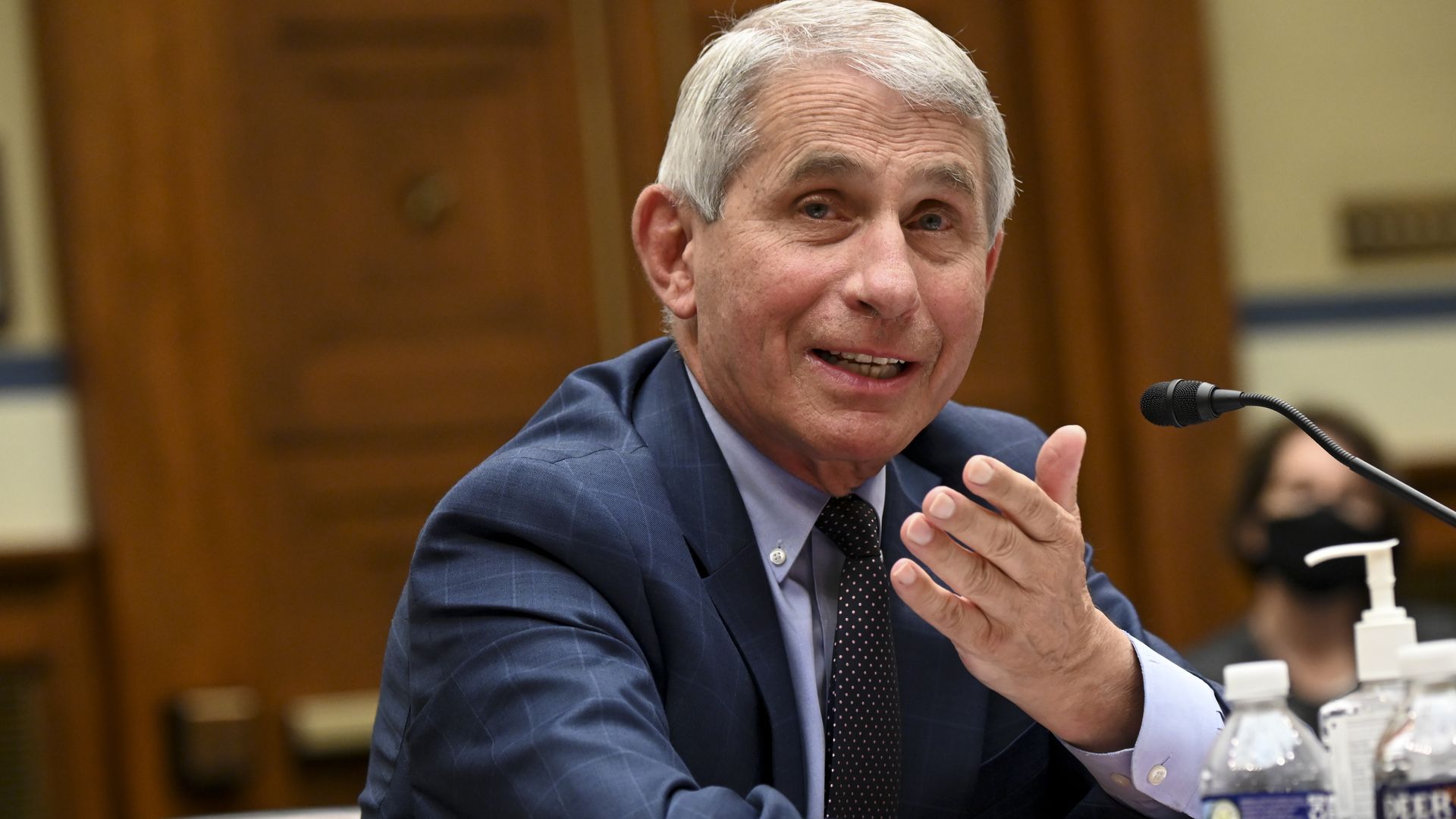Fauci refuses to comment on mail-in voting as public health measure, citing Trump discord
Add Axios as your preferred source to
see more of our stories on Google.

Fauci testifying in front of Congress. Photo: Erin Scott-Pool/Getty Images
Anthony Fauci declined to tell the Washington Post on Friday if mail-in voting should be used as a public health measure amid the coronavirus pandemic, saying his statement would "almost certainly ... be used as a soundbite."
Why it matters: Fauci said he didn't want the media to set up another confrontation between him and President Trump, but it highlights how government medical experts have often found themselves in politically contentious situations when dealing with issues like reopening schools, mask mandates or the upcoming election.
Fauci was asked about the topic on three separate occasions by the Post's Jacqueline Alemany — all without mentioning Trump's name. His responses:
- "I don't want to comment on mail-in voting, Jackie, because that is certainly going to be used as a soundbite to which — and I hate to do this to you. It's a sport now in Washington to pit me against the president and I don't really want to do that. But someone will take a quote and, bingo, it'll be me against the president and I don't want to do that."
- "Well, I think that if people maintain the capability of masks, hand washing, physical distance, to the extent possible ... the risks would be small, if you did all the things that I'm saying. So we'll get — I don't want to get into that because that's going to be misconstrued."
- "I know ... you're not going to like this, but if you know what I go through every day with, I mean, I don't even want to go — yeah, I'm sorry."
The big picture: Trump has consistently baselessly claimed that mail-in voting is susceptible to mass fraud.
- Voting by mail dates back to the Civil War, and 1 in 4 Americans have used it in the last three federal elections, per the Brennan Center.
- Both parties use mail-in voter drives, and Republicans are worried that Trump's attempts to generate fear about voting by mail could depress turnout among older GOP voters — since some may not want to risk voting in person during the pandemic.
